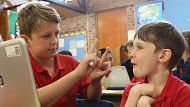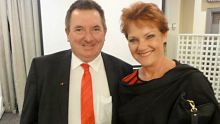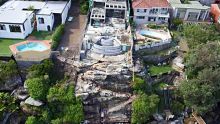"Don't teach your kids coding," says New York Times journalist Thomas Friedman. "Well – teach it if you want. But before you teach them coding, teach them digital civics: how to talk to one another on the internet, how to understand fact from fiction."
The internet is a sewer "of untreated, unfiltered information," he told his audience of teachers and international education leaders at a conference in Dubai on the weekend, "and if we don't build the values filters so our children can interact in this environment, with real values ... we have a real problem."
More NSW News Videos
Sydney school embraces coding curriculum
Pupils at Sydney's Darlington Public School are learning how to code computers and devices.
Friedman identified a problem that education systems are only now beginning to wrestle with. Life is largely lived online, and schools do not prepare children for it.
It's not just about keeping them safe from predators, cyberbullies, porn and identity theft: it's also about having an ethical framework, and the skills to assess the reliability of information.
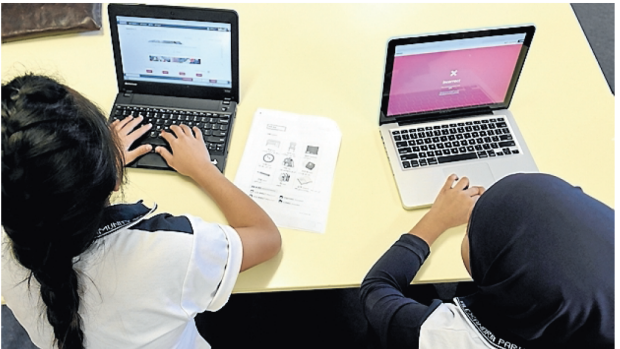
"These children are the first generation born and raised in a digital world, and they need to learn digital skills for the future," said Yuhyun Park, a Korean digital education researcher who was in the audience.
"But they are often ... left alone to navigate the negative side effects of technology."
For Dr Park, parental denial is not an option, and opting out is unrealistic. The key is to give children the skills and critical-thinking tools to make better decisions online.
"Our analogy is before you drive a car, you learn how to drive. So before you're online you learn how to use it safely and within your values," she said.
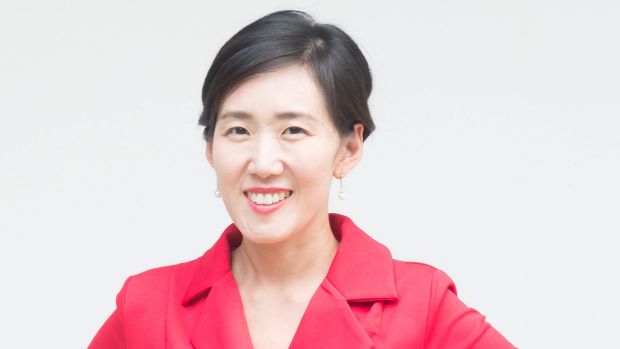
Dr Park, who has a doctorate in biostatistics from Harvard, has developed a program called DQ, which stands for Digital Intelligence.
It's a free, online, 15-hour curriculum to teach kids "digital citizenship" – a range of key skills from detecting fake news to protecting their privacy, managing screen time and handling cyberbullying, as well as "digital empathy" – aimed at making them less likely to bully others.

It's for eight-to-12-year-olds, with lessons designed like games.
"That is the age children start using digital devices and social media," she said.
A pilot program in Singapore last year demonstrated that children who did the course showed a 30 per cent reduction in risky cyber behaviours, meaning they were significantly less likely to share private data, for example.
Dr Park has two children aged seven and nine, and she said that her concerns about the world they were growing up in had driven her to start the project.
Julie Inman Grant, the Australian Children's eSafety Commissioner, which runs online child safety programs in Australia, said she is in conversation with the DQ Institute and is "exploring their methodology and work with great interest".
At the same conference where Dr Park launched DQ, the Global Education and Skills Forum in Dubai, the OECD's education arm said it had come up with its own response to the rise of the risk of fake news and the social media "filter bubble".
To encourage schools to teach critical thinking – how to question and assess the reliability of information – it is adding a new element to its international student assessment tests, known as PISA.
From next year PISA will test not only maths, science and reading skills, but "global competencies", which its education head, Andreas Schleicher, described as young people's attitudes to global issues and different cultures, analytical and critical skills and abilities to interact with others. The first results will report in 2019.
Friedman's formulation is simpler: teach your kids the golden rule. Do unto others as you would have them do to you.
The writer travelled to Dubai as a guest of the Global Education and Skills Forum.


